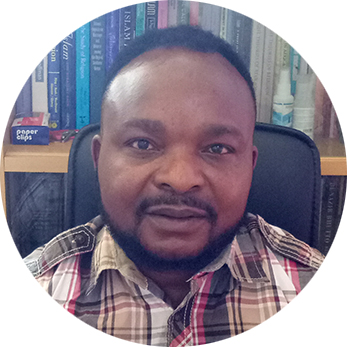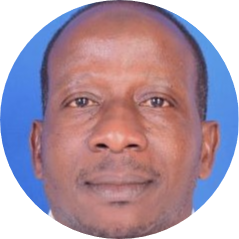Toward an Islamic Cultural Archive: Building a Collaborative Database of Islamic Learning in Africa
Research Section: Learning
Project duration: August 2019 – July 2023
Summary
The overarching aim of this project is the establishment of a dynamic archive of Islamic culture in Africa based on innovative digital working formats, developed together with mostly Africa-based cooperation partners. As we take an interdisciplinary and multi-sited approach, the diverse composition of our project team is key. The four-year funding period will serve to test and refine the research approach and digital tools through focusing on those aspects of Islamic culture that revolve around religious learning in the widest sense. For the purpose of this project, we conceive of learning as processes where teachings and practices pertaining to Islam are conveyed; these may be found in formal education, but extend to many other settings and contexts. In addition, given the interconnectedness of learning networks, we include data on religious organizations and networks. If successful, we envision a long-term perspective for the project beyond the first funding period and include other realms of Islamic culture in Africa.
Key questions, Methods and Concepts
We pursue our objective of creating a dynamic archive of Islamic culture through a total of eight interconnected case studies in five countries that revolve around a variety of questions pertaining to Islamic learning. In Tanzania, team member M. Mraja studies Islamic educational institutions and their networks in Tanzania; in Kenya, H. Ndzovu focuses on the teaching activities and religious sermons of Muslim women in Kenya while R. Seesemann collects data on the contents and practices of Islamic learning in formal educational institutions. B. Frede takes a comparative look at Islamic knowledge acquisition involving adults in urban contexts of Kenya and Mauritania. Also in Mauritania, F. Abdel Wahhabe seeks to understand processes of knowledge transmission in the context of the congregational performance of poetry in praise of the Prophet Muhammad. A. Seck takes an anthropological approach to initiatives, corpora and infrastructural frameworks of Islamic learning in Senegal where he widens the focus to include “lived Islam” in the analysis. Last but not least, in Tunisia F. Kogelmann focuses on reforms of Islamic education and its sponsors, especially in state-controlled educational settings, while R. Ben Amara looks at Islamic learning from the perspective of sub-Saharan scholars and students of Islam who join Tunisian institutions.
All project members feed the data collected in conjunction with these case studies in our joint database, maintained in the Cluster’s Digital Research Environment. Our data structure is based on a common taxonomy and constitutes the foundation on which we will eventually build a Wiki that makes our Islamic Cultural Archive accessible to a wider public. Our growing relational database will make a significant contribution to the Cluster’s digital objectives. The same applies to the “African Alphabets of the Cluster”, an app developed under the leadership of project member U. Rebstock that provides smart phones and desktop PCs (Windows and iOS) with keyboards for all common African languages and scripts.
Vision
Building on a previous pilot scheme led by U. Rebstock at Albert-Ludwigs University Freiburg, we intend to make our archive available in the form of a Wiki, to be continuously expanded in collaboration with African academic partners. By including the latters’ perspectives and approaches, the project will provide an avenue to relational and reflexive knowledge production about Islamic culture in Africa, thus promising new insights into the nature of Islamicity, i.e., into the ways in which actions and objects are defined as “Islamic” and the ways in which “Islamic” identities are constructed.
Contribution or relation to the Clusters aims
The project contributes to the RS Learning by mapping ideas and practices as well as networks pertaining to Islamic education and scholarly culture in Africa. Our innovative approach to the collaborative collection, storage, and connectivity of research data will allow for synergies both within and beyond the RS Learning, with the potential of providing a blueprint for digital working formats in the cluster as a whole. Further, our digital working methods will allow us to shed new light on the multiple, relational, rand reflexive character of Islamic culture in Africa, thus helping to advance the Cluster’s theoretical agenda.
Project Team

Islamic Studies, University of Bayreuth
Principal Investigator
E-Mail: ruediger.seesemann@uni-bayreuth.de

Islamic Studies, University of Freiburg
Team Member
E-Mail: ulrich.rebstock@orient.uni-freiburg.de

Islamic Studies, University of Bayreuth
Principal Investigator
E-Mail: franz.kogelmann@uni-bayreuth.de

Religious Studies, Moi University, Eldoret, Kenya
Team Member

Islamic Studies, University of Bayreuth
Postdoctoral Research Fellow
E-Mail: britta.frede@uni-bayreuth.de

Dr. Mohamed Mraja
Religious Studies, Bomet University College, Kenya
Team Member
E-Mail: mraja@buc.ac.ke

Dr. Fatimetou Abdel Wahabe
Arabic Literature, University of Nouakchott, Mauritania
Team Member

Dr. Ramzi Ben Amara
Islamic Studies, University of Sousse, Tunisia
Team Member

Dr. Abdourahmane Seck
Anthropology and History, Gaston Berger University, St. Louis, Senegal
Team Member
Further links / key references
- Find more information about the African Alphabets of the Cluster here.

